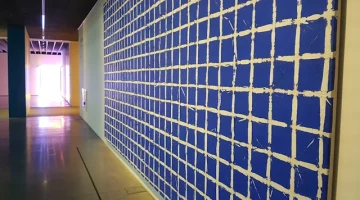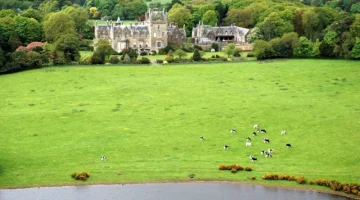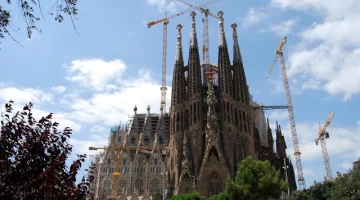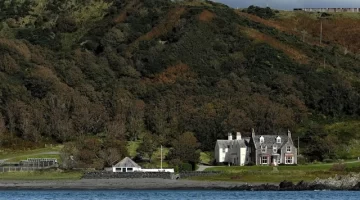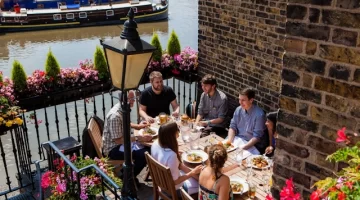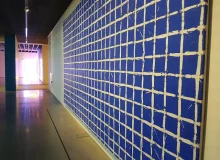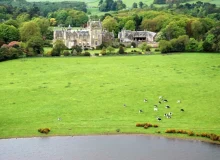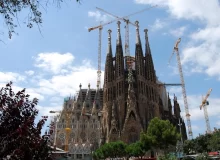Carcassonne
The Travel Pages visits Carcassonne whose old citadel is one of the most dramatic sights in the South of France.

Carcassonne’s old citadel is one of the most dramatic sights in the south of France. Set on a hill high above the River Aude, it is surrounded by medieval walls and lined with an army of 52 watch towers and turrets topped by conical roofs. The fortress is unusual for its double ring of stone walls, which together measure 3 kms (1.9 miles).

The Medieval City
The medieval city, known simply as the Cité, was first settled in the 6th century BC. The inner walls date from Gallo-Roman times, and these 3rd/4th-century works can be seen from the lices, or lists, the vacant ground between the two sets of walls. The building of the outer ramparts which surround the entire perimeter of the hill began in 1226 and fortifications continued throughout the 13th century.

The present fairy-tale style was the work of Viollet-le-Duc, who restored the walled city in the second half of the 19th century, adding such fanciful features as the pointed roofs and arrow slits in the medieval towers. It is now a UNESCO World Heritage Site.

The Main Gates
Entrance to the Cité is through two main gates, the massive Porte Narbonnaise near the car park on the east side, and the more strenuous, but atmospheric approach through Porte d’Aude on the west.

Inside the Walls
Inside the walls, it’s mostly given over to tourism, the streets lined with shops and restaurants, particularly around the two main squares, place St Jean and place Marcou. The main attractions are the Basilica Sainte-Nazaire, built in the 11th-14th centuries, and Château Comtal, a feudal castle built by the Trencavels, the Viscounts of Carcassonne in the 12th century.

You can only visit the château on a guided tour, which is highly recommended as it gives access to some of the towers and lets you walk along the inner ramparts for splendid views from the citadel. During busy times it’s best to book ahead at the tourist office beside Porte Narbonnaise
There are a few other small museums, but the real attraction of the Cité is simply strolling through the narrow streets and around the spectacular fortifications, soaking up the medieval atmosphere.

The Lower Town
Below the citadel is the Bastide Saint Louis, also called the Ville Basse, or lower town. It was laid out in 1260 in a checkerboard pattern around its central square, place Carnot. It is connected to the Cité by the lovely Pont Vieux (old bridge), which spans the River Aude. From here there are fine views of the citadel and pretty rue Trivalle below.



Canal du Midi
The lovely Canal du Midi runs along the northern end of this quarter. Boat trips run from the loch basin opposite the train station.

